In the ever-evolving world of digital marketing, understanding how search engines rank websites is crucial for online success. While many focus on optimizing their websites with the right keywords and high-quality content, there’s another powerful factor that contributes to your site’s visibility—off-page SEO. Though often overlooked, off-page SEO plays a pivotal role in boosting a website’s authority, trustworthiness, and search engine rankings. In this blog, we’ll explore the concept of off-page SEO, its significance, and how it complements your on-page efforts to achieve long-term success in the competitive digital landscape.
What is Off-Page SEO?
Off-page SEO refers to the techniques used outside of your website to improve its visibility and ranking on search engines. Unlike on-page SEO, which focuses on optimizing the content and structure within your site, off-page SEO revolves around building a strong online presence and reputation.
This is achieved through strategies like link building, social media marketing, influencer outreach, and other external factors that signal to search engines that your website is credible and authoritative. By leveraging off-page SEO, you not only enhance your site’s ranking but also build trust with both search engines and your audience, making your website more likely to rank higher in search results.
Unlock higher rankings, quality traffic, and increased conversions through tailored award-winning SEO strategies. Elevate your web presence
by Infidigit’s SEO solutions. Unlock higher rankings, quality traffic, and increased conversions through tailored award-winning SEO strategies.![]()
![]()
Why Off-Page SEO Is Important?
Off-page SEO plays a critical role in helping your website stand out in search engine results and build long-term authority. While on-page SEO optimizes elements within your website, off-page SEO is essential for establishing trustworthiness and credibility with search engines. The more quality backlinks, social media mentions, and positive user interactions your website has, the more likely it is to rank higher.
Off-page SEO also signals to search engines that your content is relevant and authoritative, improving your website’s visibility and driving more organic traffic. In today’s competitive digital landscape, neglecting off-page SEO can limit your website’s potential for growth, making it crucial for achieving sustainable SEO success.
Off-Page SEO vs. On-Page SEO: How Do They Differ?
Off-Page SEO and On-Page SEO are both essential components of a comprehensive SEO strategy, but they focus on different aspects of improving a website’s visibility and ranking. Here’s how they differ:
On-Page SEO:
- Definition: Refers to all the optimization efforts you make directly within your website.
- Focus Areas:
- Content: Creating high-quality, keyword-optimized content.
- Meta Tags: Optimizing title tags, meta descriptions, and headers.
- Internal Linking: Linking pages within your website for better navigation.
- URL Structure: Ensuring clean, readable, and keyword-friendly URLs.
- Goal: Improve the content and structure of your website to make it more search engine-friendly and user-friendly.
Off-Page SEO:
- Definition: Refers to activities done outside of your website to improve its authority, credibility, and ranking.
- Focus Areas:
- Backlinks: Acquiring high-quality backlinks from reputable websites.
- Social Media: Building brand presence and engagement on platforms like Facebook, Twitter, and Instagram.
- Influencer Outreach: Collaborating with influencers to amplify your content.
- Brand Mentions: Gaining mentions of your brand across the web.
- Online Reviews: Encouraging positive reviews and testimonials.
- Goal: Build your website’s online reputation and authority, signaling to search engines that your website is trustworthy and relevant.
Both On-Page and Off-Page SEO are crucial for achieving high search engine rankings. While on-page SEO focuses on optimizing your website, off-page SEO builds your site’s reputation and authority through external efforts. A balanced approach using both strategies ensures a strong, well-rounded SEO foundation.
Key Off-Page SEO Factors to Consider
Below are some of the off-page SEO factors to consider:
- Domain Authority
- Relevance
- Site Traffic
- Link Type
-
Domain Authority
Domain Authority (DA) is a metric that measures the strength of your website’s domain. Higher DA indicates a more authoritative website, which can improve rankings. It’s influenced by factors like the quality and quantity of backlinks, content quality, and user experience.
-
Relevance
Relevance refers to how closely your website’s content aligns with the search queries it targets. Gaining backlinks and mentions from relevant websites in your niche signals to search engines that your content is authoritative and valuable within its specific domain.
-
Site traffic
Higher site traffic signals to search engines that your website is popular and relevant. Organic traffic, referral traffic from backlinks, and social media mentions all contribute to your site’s overall visibility and can positively impact SEO performance.
-
Link Type
There are two types of links that we build while doing link-building or off-page activities. One is dofollow and the other is no-follow.
-
Do-Follow Links
A do-follow link is a default link type that allows Google bots or spiders to pass link juice or value to the link or webpage that is linked to. E.g.: If a renowned fashion magazine, let’s say X, adds an article to their website and gives a do-follow link to relevant business, let’s say Y, it means that X is giving some of their own value to Y. This value helps Y achieve a better PageRank and rank better on SERP. The best way to use a do-follow link is to add a relevant keyword as the anchor text.
Google observes the number of do-follow links you get to your website and from the number of separate domains you get it from. The more the number of do-follow links from multiple and relevant domains, the more the value that is being passed.
This is what a do-follow link looks like:
<a href=”https://www.infidigit.com”>INFIDIGIT Consultants</a>
-
No-Follow Links
A no-follow link type means Google bots or spiders will not follow such links. They won’t pass any link-juice or value to the page where that is linked to. As no link juice is passed, no-follow links won’t have any influence on rankings. No-follow links were introduced in an attempt to stop web spam.
This is what a no-follow links look like:
<a href=”https://www.infidigit.com” rel=”nofollow”>INFIDIGIT Consultants</a>
Types of Links in Off-Page SEO
Natural Links
Natural links are when other bloggers, webmasters, or site owners redirect links to the content on your Web page because they believe it would prove useful for their readers and would add substantial value to their site or page. Other website owners sharing your content naturally happens only when your content is top-notch and high quality with authority in the respective domain.
Built Links
Built links are manually obtained links to gather with considerable effort. This means that one has to invest time and energy in contacting other site owners, webmasters, and bloggers to feature your content, either through links or guest blogging. To obtain built links, you need to have substantial reach and recognition in the market.
Created Links
Created links, as the name suggests, are created by the site owner to have search engines think that their links are relevant and important. There are several kinds of self-created links, such as backlinks on a forum or blog comments. There are good and bad backlinks that can help or hinder your SEO rankings.
15 Different Types of Off-Page SEO Activities
Now that we have you caught up on the basics of off-page SEO, we shall explain the various activities you must take up to improve your chances of ranking well on Google SERPs. Here is a list of crucial off-page SEO activities and how to go about them:
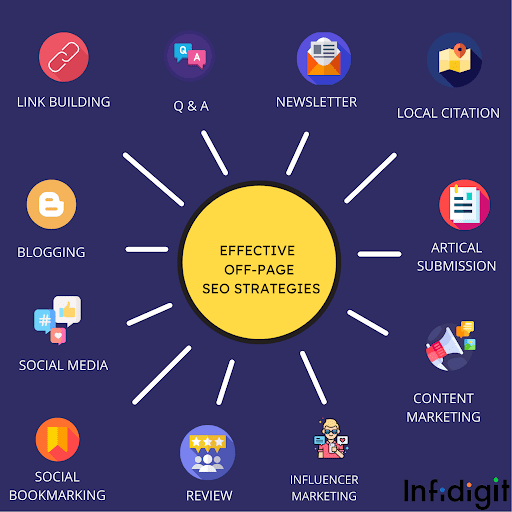
1. Link Building
Link building is one of the most crucial off-page SEO activities. It involves acquiring high-quality backlinks from other websites, which signals to search engines that your content is trustworthy and relevant. The more quality backlinks your website has, the higher its authority and ranking potential.
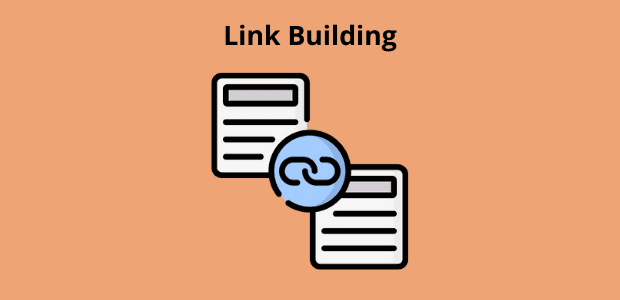
Here are three effective link-building strategies:
- Broken Link Building: This technique involves finding broken links on external websites and offering your content as a replacement. Not only does it help the website owner fix their broken links, but it also provides an opportunity for you to earn a valuable backlink.
- Guest Posting: Guest posting allows you to write articles for other blogs or websites within your industry. By contributing valuable content, you can gain backlinks and exposure to a new audience, improving your website’s authority and traffic.
- Unlinked Brand Mentions: When your brand is mentioned online without a link, it’s an opportunity to turn those mentions into backlinks. You can reach out to the site owner and ask them to link to your website, thus turning a mention into a valuable SEO asset.
Effective link building not only boosts your website’s authority but also increases its visibility and search engine rankings.
2. Brand Building
Brand building in off-page SEO focuses on establishing a strong and recognizable identity for your website or business across the web. A strong brand can help build trust with both users and search engines, which in turn can improve your website’s authority and rankings.

Key strategies for effective brand building include:
- Social Media Engagement: Engaging with your audience on social media platforms is a powerful way to build your brand. Consistently sharing valuable content, interacting with followers, and participating in relevant conversations boost your brand’s visibility and reputation. The more engaged your audience is, the more likely they are to trust your brand, which signals search engines to rank your site higher.
- Building Authority Through Expertise: Establishing your brand as an authority in your niche involves creating and sharing high-quality, informative content that addresses your audience’s needs. This could include expert blog posts, industry reports, webinars, or podcasts. The more expertise you demonstrate, the more likely your brand will gain recognition and backlinks from other reputable sites, which further boosts your SEO efforts.
By consistently working on brand building, you increase your site’s credibility and authority, improving your chances of ranking higher on search engines and attracting more traffic.
3. Content Marketing
Content marketing is a powerful off-page SEO strategy that focuses on creating valuable, relevant content to attract and engage your target audience. Effective content marketing not only drives traffic but also helps build your website’s authority and encourages social sharing and backlinks, which are essential for SEO.
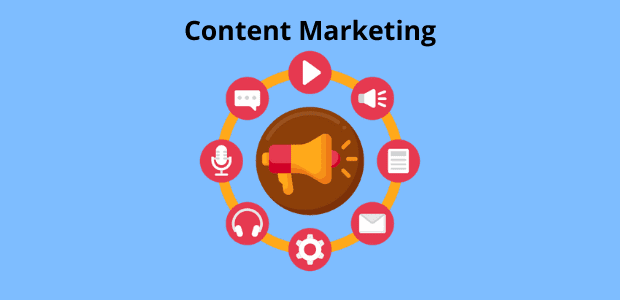
Key content marketing strategies include:
- Infographics: Shareable and visually appealing, infographics simplify complex ideas and attract backlinks, boosting SEO.
- Content Syndication: Republishing content on other sites increases reach and generates backlinks, helping with SEO.
- Digital PR: Building media relationships through press releases and interviews helps gain high-quality backlinks, boosting your SEO efforts.
Content marketing is crucial for improving visibility, driving traffic, and enhancing your website’s authority.
4. Influencer Outreach
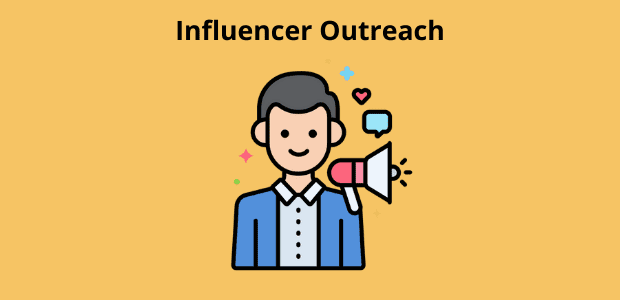
Influencer outreach involves partnering with influencers in your industry to promote your brand or content. Influencers have established trust and authority with their audience, and their endorsements can significantly increase your reach and credibility.
By collaborating with influencers, you can get valuable backlinks, drive traffic, and improve brand visibility. This strategy also helps in creating authentic content that resonates with a wider audience, boosting both your SEO and overall marketing efforts.
5. Local SEO
Local SEO focuses on optimizing your website to rank higher in local search results, helping you reach potential customers in your geographic area. This is particularly important for businesses with physical locations or services targeting a specific region.
Key strategies include:
- Google Business Profile Optimization: Claim and optimize your Google My Business listing to appear in local search results, maps, and relevant local queries.
- Citation Management: Ensure your business name, address, and phone number (NAP) are consistent across all local directories and platforms, helping improve your local search visibility.
Local SEO is crucial for attracting local customers, increasing foot traffic, and improving your website’s presence in local search rankings.
6. Social Media Marketing
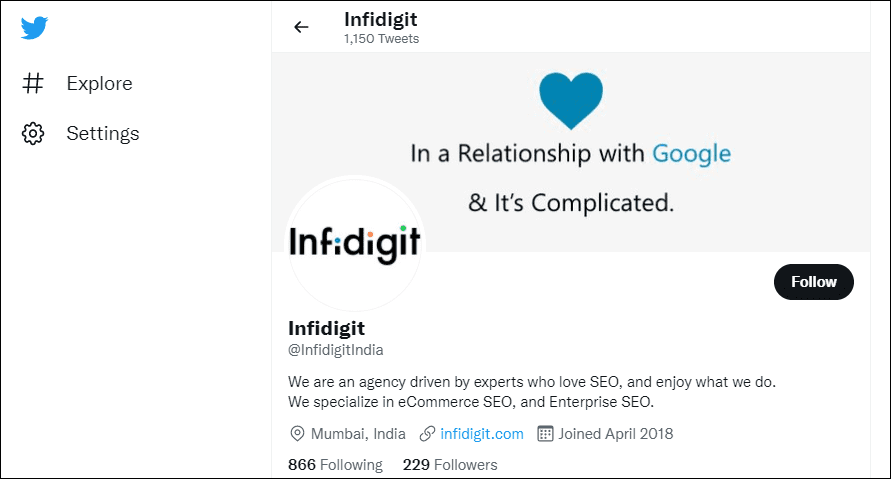
Social media marketing involves using platforms like Facebook, Twitter, Instagram, and LinkedIn to promote your brand and engage with your audience. It’s a vital off-page SEO strategy that drives traffic, builds brand awareness, and encourages social signals, which can indirectly impact search engine rankings.
By consistently posting valuable content and interacting with followers, you can increase brand visibility and generate backlinks from shared content. Social media also helps you connect with influencers and industry leaders, further boosting your SEO efforts.
7. Reviews and Testimonials

Reviews and testimonials are powerful off-page SEO tools that build trust and credibility for your brand. Positive reviews on platforms like Google, Yelp, or industry-specific sites not only influence customer decisions but also contribute to better search rankings by increasing your site’s relevance and authority.
Encouraging customers to leave reviews can enhance your online reputation and lead to valuable backlinks. Testimonials on your website or third-party platforms also help showcase your expertise and improve SEO by generating fresh, user-generated content.
8. Events and Webinars
Events and webinars are excellent ways to engage with your audience and build your online presence. Hosting or participating in industry-related events, webinars, or online workshops can help generate quality backlinks and increase brand visibility.
These events also provide opportunities to network with influencers and industry leaders, further boosting your credibility and SEO. By sharing event content and follow-ups on social media or through blogs, you can create more engaging content that enhances your website’s authority.
9. Forums Posting
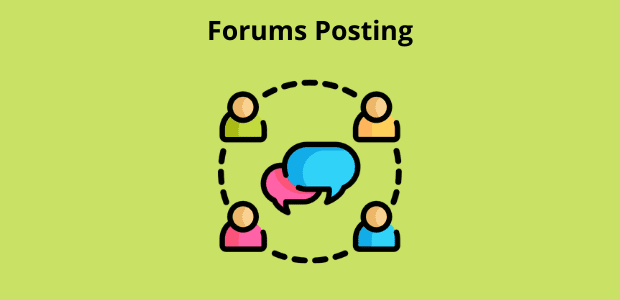
Forum posting involves participating in online discussion forums related to your industry or niche. By offering valuable insights, answering questions, and sharing useful information, you can build your online reputation, drive traffic to your website, and generate backlinks.
Engaging in forums also allows you to establish yourself as an authority in your field while promoting your brand. Ensure that your contributions are relevant and helpful, as this encourages users to visit your site and learn more about your offerings.
10. Q&A Platforms
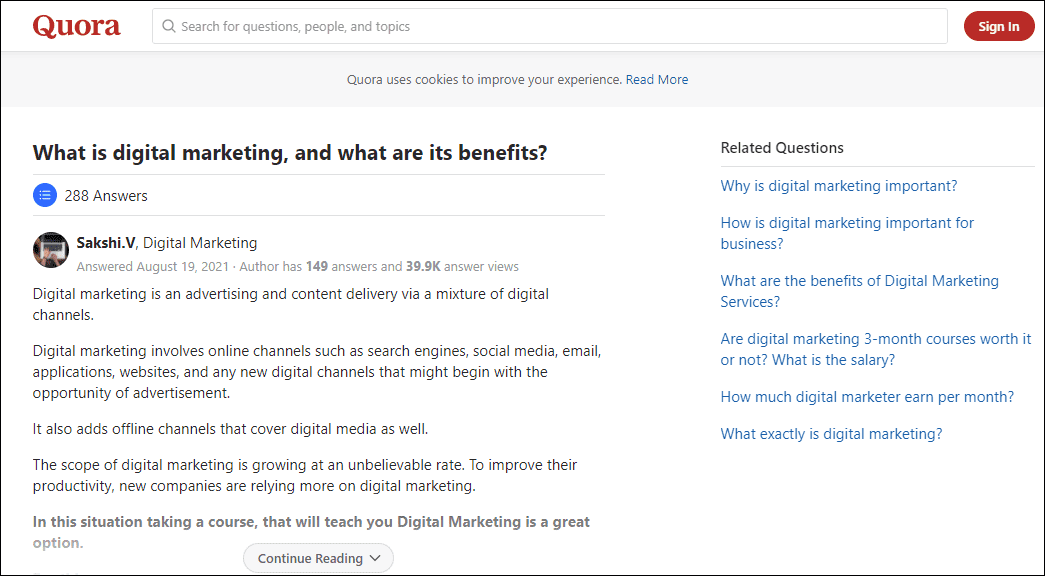
Q&A platforms like Quora and Stack Exchange are great for driving traffic and building backlinks. By answering questions relevant to your industry or expertise, you can showcase your knowledge, establish authority, and direct users to your website for more detailed content.
Providing thoughtful, well-crafted answers can increase your visibility and encourage people to trust your brand. Additionally, including relevant links to your website or blog posts in your answers helps improve SEO while adding value to the discussion.
11. Podcasts
Podcasts are a growing medium that can significantly enhance your off-page SEO strategy. By either hosting your own podcast or appearing as a guest on established podcasts, you can reach new audiences, build brand awareness, and gain valuable backlinks.
Podcasts allow you to discuss industry topics, share your expertise, and connect with influencers, all of which boost your credibility and online presence. Additionally, sharing podcast episodes on social media and your website can drive more traffic and improve SEO.
12. Newsletters
Newsletters are a powerful way to maintain engagement with your audience and drive traffic to your website. By regularly sharing valuable content, updates, and offers through email, you keep your brand top of mind and encourage repeat visits.
Incorporating links to your latest blog posts or landing pages in newsletters can generate backlinks and improve SEO. Newsletters also help in building relationships with your audience, which can lead to increased brand loyalty and higher website traffic.
13. Document Submissions
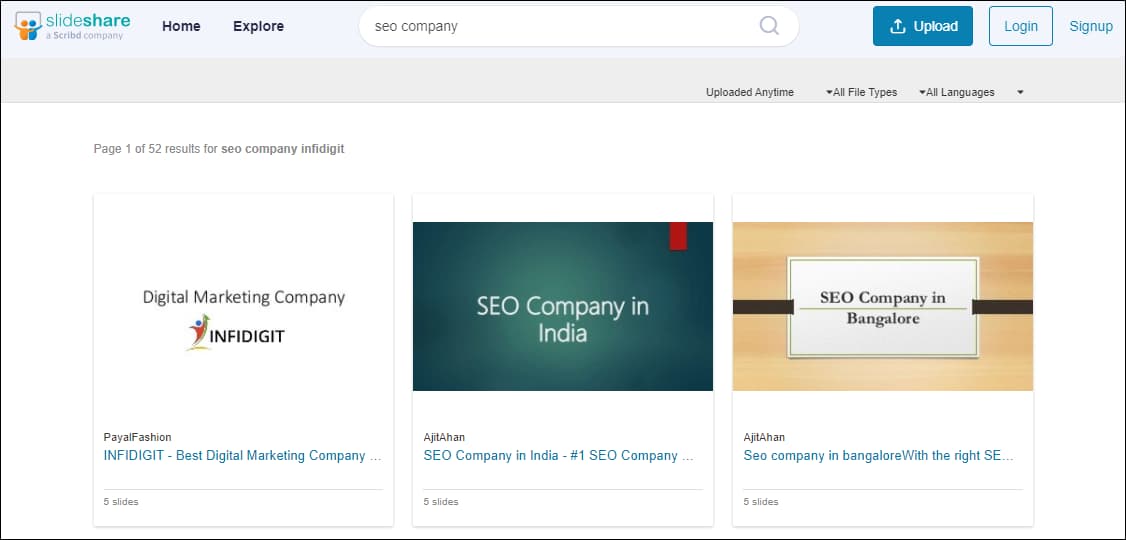
Document submissions involve sharing informative documents, such as PDFs, presentations, and whitepapers, on platforms like Scribd, SlideShare, or other document-sharing websites. This off-page SEO technique helps increase brand visibility and provides opportunities to include backlinks to your website.
By sharing high-quality, relevant documents, you can drive targeted traffic and gain valuable backlinks from authoritative platforms. Document submissions also position your brand as an expert in your field, further enhancing your online reputation and SEO efforts.
14. Image Submissions
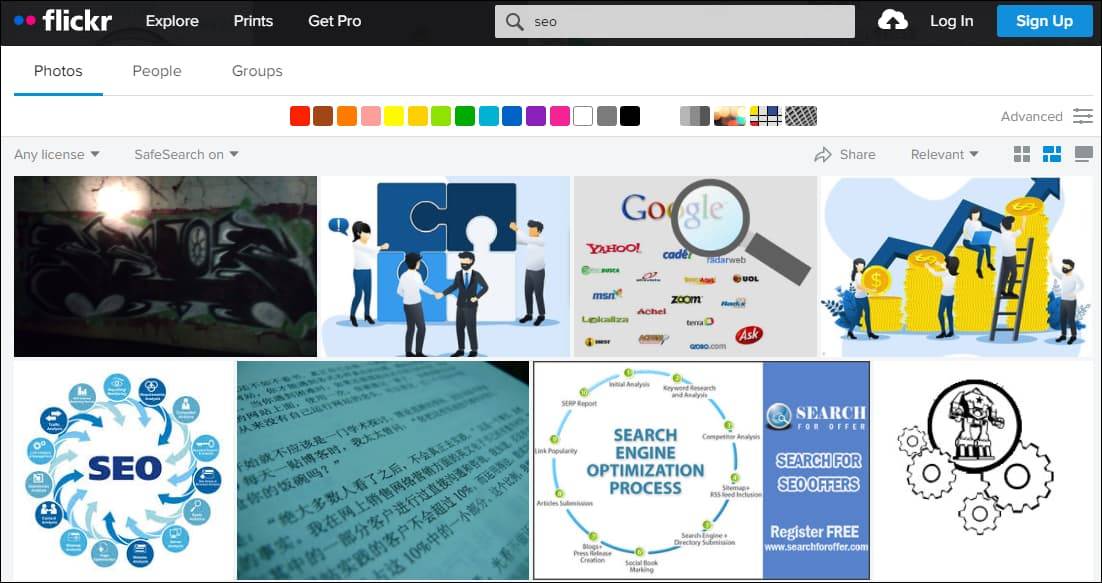
Image submissions involve uploading optimized images to image-sharing platforms like Pinterest, Flickr, or Instagram, with relevant descriptions and links back to your website. This off-page SEO tactic can drive traffic to your site and help in building backlinks.
By using visually engaging content, you not only enhance brand visibility but also attract more social shares and engagement. Properly tagging and optimizing images with keywords increases the chances of your images being discovered, contributing to your SEO strategy.
15. Social Bookmarking
Social bookmarking involves saving and sharing links to your content on popular bookmarking sites like Reddit, StumbleUpon, or Digg. This off-page SEO activity helps increase visibility, drive traffic, and generate backlinks to your website.
By submitting your content to these platforms, you enhance its discoverability and potentially attract more users to your site. Social bookmarking also encourages engagement and sharing, which can lead to increased brand exposure and improved search rankings.
Benefits of Off-Page SEO
Here are some definite benefits of off-page SEO to keep in mind when formulating a strategy:
- Boost in Rankings: Off-page SEO improves your rankings by building quality backlinks from authoritative websites, signaling search engines to rank your site higher.
- Increased Domain Authority: Off-page SEO activities like link building and social media engagement boost your Domain Authority (DA), improving your site’s credibility and search engine rankings.
- Greater Trust and Credibility: High-quality backlinks and brand mentions build trust with both search engines and users, making your website more credible through influencer outreach and reviews.
- Enhanced Traffic and Visibility: Acquiring authoritative backlinks and increasing social media presence drives more organic traffic to your site, enhancing visibility and SEO results.
Common Off-Page SEO Mistakes to Avoid
While off-page SEO is crucial for improving your website’s visibility and rankings, certain mistakes can hinder your progress. Avoiding these common errors ensures that your off-page efforts are effective and aligned with best practices.
- Overusing Low-Quality Links: Excessive low-quality links can harm your website’s reputation and rankings. Focus on acquiring high-quality, authoritative backlinks instead.
- Ignoring Social Media Channels: Neglecting social media limits your online visibility. Engage actively on platforms to build brand awareness and drive traffic.
- Focusing Only on Quantity Over Quality: Prioritizing the number of links over their quality can lead to penalties. Aim for fewer, but more relevant and high-quality backlinks.
FAQ’S
What is off-page SEO in simple words?
Off-page SEO refers to a collective set of activities that are done outside of your website to build links pointing out to you. The main agenda of Off-Page SEO is to create quality, relevant, and trustworthy backlinks for increasing traffic and rankings.
What is the difference between On-page SEO and Off-page SEO?
On-page SEO is a technique that is used for optimizing individual web page elements to rank higher on the SERPs. While off-page SEO refers to activities done outside the website to boost rankings.
How to do Off-page SEO?
Content Marketing, Social Bookmarking, Guest Posting, and Influencer Outreach are some of the most popular types of off-page SEO techniques that can help you in doing off-page SEO and earning links.
What are the benefits of Off-page SEO?
Off-page SEO can help brands boost their SERP rankings and attract traffic by increasing website exposure. Off-page SEO also benefits building a website’s recognition, PageRank, and domain authority.
What are the best strategies for off-page SEO?
The best strategies for off-page SEO include:
- Link Building: Acquire high-quality backlinks through methods like guest posting and broken link building.
- Social Media Engagement: Boost brand visibility and drive traffic through active social media participation.
- Content Marketing: Create valuable content (blogs, infographics) to earn backlinks and increase brand exposure.
- Influencer Outreach: Collaborate with influencers to expand your brand’s reach and credibility.
- Local SEO: Optimize your Google Business Profile and focus on local citations.
- Reviews and Testimonials: Encourage customer reviews to build trust and credibility.
- Podcasts and Webinars: Share industry knowledge via podcasts and webinars for backlinks and exposure.
- Brand Building: Establish authority and trust through consistent content marketing and engagement.
These strategies enhance your site’s authority, visibility, and rankings on search engines.
How long does off-page SEO take to show results?
Off-page SEO typically takes 3 to 6 months to show visible results. While the process may seem slow, consistent efforts in building quality backlinks, social media engagement, and brand building will gradually improve your website’s rankings and traffic over time. The timeline can vary based on factors like industry competitiveness and the effectiveness of your strategies.
Popular Searches
How useful was this post?
3.9 / 5. 14











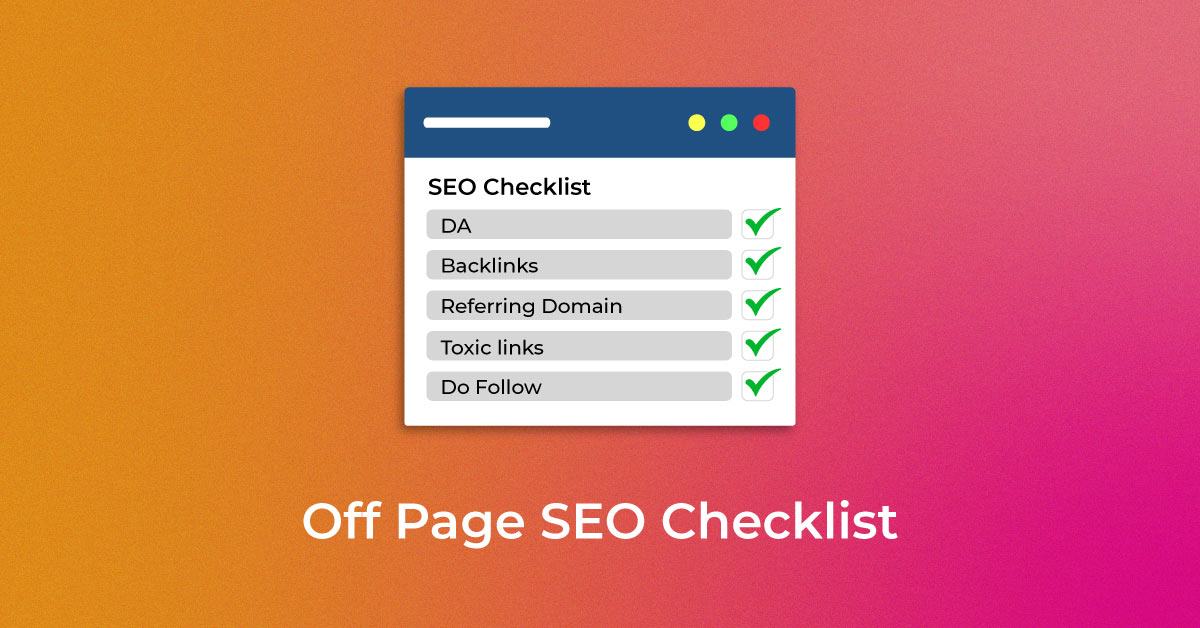
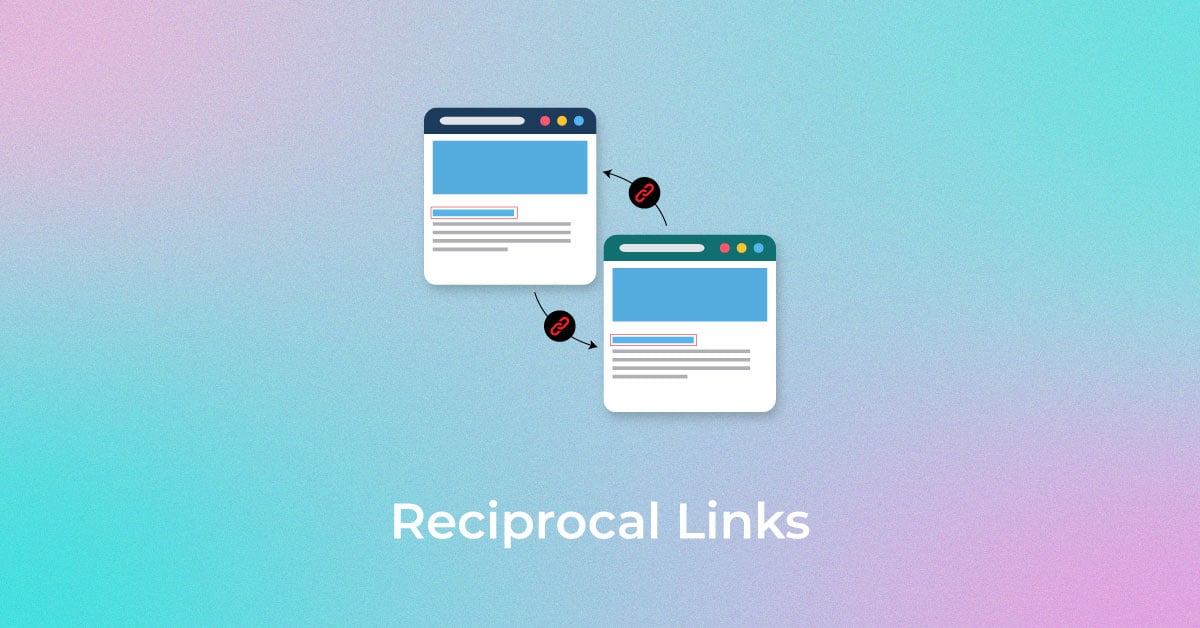
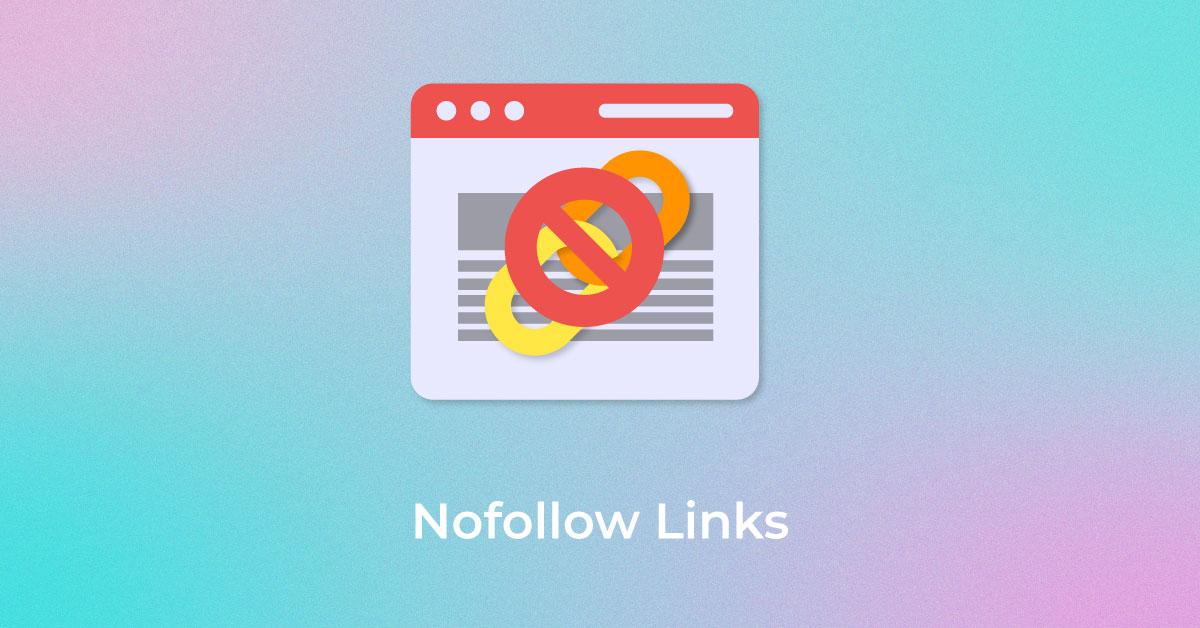
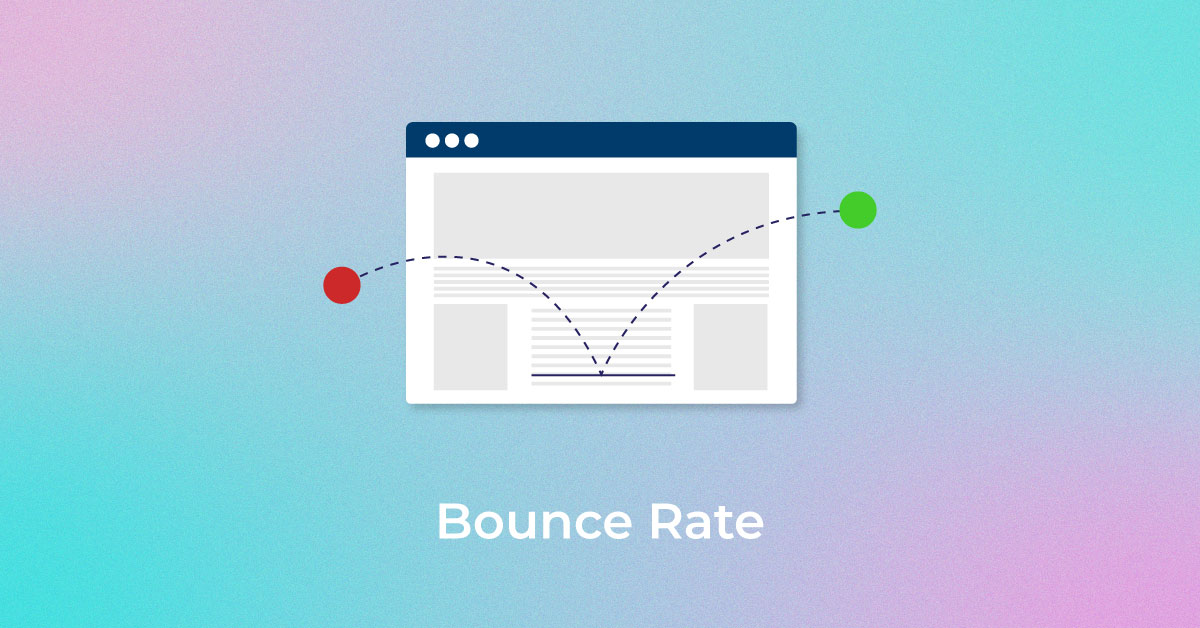



103 thoughts on “What is Off-Page SEO? Meaning, Types, Techniques, & Checklist”
Great post. Articles that have meaningful and insightful comments are more enjoyable, at least to me. It’s interesting to read what other people thought and how it relates to them or their clients, as their perspective could possibly help you in the future.
Thank you, Subscribe to our blogs to stay updated with upcoming blogs.
nice article, thanks for sharing the off page SEO techniques
You’re most welcome Adam
Hi,
I really appreciate this post and I like this very much. Ecommerce SEO Services are important to grow our business. I am waiting for a new post here and Please keep it up in the future.
Thanks, Thomas. Do subscribe us for more latest updates.
Thanks for the marvelous posting! I really enjoyed reading this informative and creative content. I have bookmarked this and want to share it with others. Very insightful blog.
Thanks, do subscribe us for more insightful posts.
Thanks for posting a useful article.
Thank You. Checkout our latest blogs for more updates.
Much obliged for sharing the article, I prescribe the clients to do remark posting and index accommodation also since doing everything in SEO is critical to get great web crawler positioning.
Thank you for sharing your valuable feedback.
Amazing Post. Thanks for sharing the off-page Seo techniques. Your blog is really awesome as well as it is very excellent and I got more interesting information. Thanks For Sharing This Article. I am Truly Motivated By You For Blogging. Thanks, Again.
Thanks. Do subscribe us for more latest updates.
Thank you for your useful information.
Thanks. Check out our latest posts for more updates.
It is really a nice and interesting blog. Looking forward to more blogs like this.
Thanks. Do subscribe us for more latest updates.
Nice article, deep knowledge. Thanks for sharing.
Thanks. Read our latest posts for more updates.
Thanks for sharing a very helpful article.
Thanks. Read our latest posts for more updates.
such a useful article for beginners and easy to understand. well done.
Appreciated. Read our latest posts for more updates.
14 Best free SEO tools to use
1) Google Analytics
2) Answer the public
3) MozBar
4) SEMrush
5) Keyworddit
6) Woorank
7) Mobile-friendly Test
8) Ubersuggest
9) BROWSEO
10) CanIRank
11) Keywords Everywhere
12) Check My Links
13) Counting Characters Google SERP Tool
14) Google Search Console
Thanks for sharing your feedback.
Thank you for sharing helpful article site. Wonderful post with unique content about how to rank a website or web page through SEO Strategies.
Glad to know you liked our post. Subscribe to us for more latest updates.
This is a really too good post. This article gives truly quality and helpful information. I’m definitely going to look into it. Really very useful topic info is provided here. Thank you so much buddy and Keep up the good work.
Thank you for sharing your valuable feedback. We are glad to know you liked our post. Check out our latest blogs for more updates.
Search engine optimization (SEO) is a term that describes the searchability of a website on an online search engine like Google. There are several variables that a search engine takes into account when displaying results, and as such, there are multiple strategies to improve a website’s SEO.
One such strategy involves improving a website’s off-page SEO. Also called “off-site SEO,” it refers to improving the likelihood that a particular website will appear higher up on a search engine’s search results though means not directly related to the website itself.
Thank you Sourav for sharing your valuable feedback & knowledge with us.
Thank you for sharing such an informative article. Your article helps people who want to enhance their skills in digital marketing. According to me Off-page seo is tremendously valuable because it tells search engines that your website is very important to others on the web.
Hey Anna, thanks for sharing yur feedback. Check out our latest posts for more updates.
This was such an informative article. The information given above was of great use for me. Off page SEO is of great importance. Keep sharing such amazing articles to boost our knowledge.
Thank you for sharing your valuable feedback. Yes, off-page SEO is of utmost importance in building links in your niche. Check out our latest posts for more updates.
Today I get to know how useful is Off-Page SEO. Your article is very informative and I guess it will help me in increasing organic traffic & boost my website rank on search engines. Thank You. Keep Writing…
Glad to know you liked our post Sanket. Check out our latest blogs for more insights.
thank you for writing about the off-page SEO guide.. this is really helpful for me.. I’ll follow your guide when creating backlinks…
Thanks Anushka for sharing your valuable feedback. Subscribe to us for more latest updates.
Hey Your content is just amazing. It is clear cut point information on whole seo process. I came to know new things about SEO. Thanks for sharing such information on SEO. It help me clear my douts.
Hey Amit, thanks for sharing your feedback. Please explore our other blog categories for more helpful insights.
Informative Article!
Thanks, Zaara. Please read our latest posts for more insights.
Great blog post!!
Thank you for sharing your valuable feedback with us.
wonderful article, learned a lot from it, thanks for sharing. I am surely going to try these tips and share them with my network so that they can also be benefited from it.
awesome blog and great insights worth reading.
Thank you, Sayali, for sharing your feedback. Check out our latest posts for more updates.
I loved your content about off page seo, this is one of the best and informative post on off page very help and easy to understand and apply.
We are glad to know you liked our post. Please subscribe to us & get notified of the more helpful insights.
Readful article. Thank you for sharing with us.
Thanks, Ritesh for your appreciation. Subscribe to us for more helpful insights.
Thank you for sharing such type of content, very helpful for us.
We are glad to know you liked our post. Thanks for sharing your feedback.
What an amazing article this actually solved alot of my queries. Thank you admin so much for this vast knowledge of off page SEO.
Hey Shubham, thanks for sharing your feedback. Subscribe to us for more helpful insights.
Wow, this blog is awesome. Wish to see this much more like this. Thanks for sharing your information!
Thank you, Rajesh for your appreciation.
Your blog is very easy to understand and informative. Keep up good work
Thank you Yash. Subscribe to our blogs to get the latest information on SEO.
Great informative post. I appreciate, Thanks for sharing.
Very nice post! Thanks for this useful & informative post. keep posting.
We are glad that you liked our post. Do subscribe to us for more latest updates.
I found this post is very helpful & informative this post will going to clear all the question related to Off-page SEO,
Keep On Updating us with these amazing posts!!
Pleased to know that you liked our post. Subscribe to us for more updates.
Best article, it really helped me a lot to achieve goals i really want from a long time. These are the best ever things i got in my life.
Thank you for sharing your valuable feedback. Check out our latest posts for more updates.
This is an excellent post! It was just what I had been looking for. I was looking for a blog where I could learn more about off-page SEO and the tasks that can be done to improve a website’s ranking and success in search engine results pages. Thanks for posting this amazing article.
You are Welcome. Read our latest posts for more updates.
A well written article for beginners and easy to understand. well done.
Thank you, Vini. Check out our latest posts for more updates.
Very nice article and good website
Thank you, Manish.
Nice article.Very well explained about SEO. To get information on SEO
Thank you, Isha. Subscribe to us for more latest updates.
Very nice post. In this article, you have explained very well SEO. A well-written article for beginners and easy to understand. well done.
Glad to hear that.
The importance of SEO and explanation of SEO off-page activities is amazing, even beginners can learn many things from this post.
Happy to hear that John.
Nice content, Liked it keep it up !!
We are glad that you liked our post. Check out our latest posts for more updates.
Thank you for the interesting article and very useful information about off page SEO and off page matters. Every digital marketing person to know the off page factors.
Thank you for sharing your valuable feedback. Subscribe to our blogs to get the latest information on SEO.
thank you very much for your content that helped me lot to understand off page SEO ..
Hi,
This article is very helpful to learn Off-Page SEO.
I understand Off-Page SEO after reading this article.
Thanks for sharing this article
You are Welcome. Check out our latest posts for more updates.
Excellent article!! Anything did outside of your website that has the potential to affect search engine results is referred to as off-page SEO. It is quite significant in SEO. It was a fantastic opportunity to learn. Thank you for sharing your expertise.
You are Welcome. Check out our latest posts for more updates.
That was an amazing article about off-page SEO, it helps me in understanding how off-page SEO is important.
Very nice article. I have gotten a lots of knowledge on about website article submission sites.
Excellent site lists. Thanks for share.Sir give me some tips how to improve my
website ranking in search engines. Thanks again & keep up the good work
It’s very useful for me. Thanks for sharing this topic
Thank you. Do check out our latest blogs for more updates
This article is very worthful for beginners.
Great article with lots of knowledge related to Off-Page SEO.
Thanks for sharing this informative content.
Thank you for sharing Best practical knowledge on Off-page SEO, This article is really helpful sir.
Thank you Harsh. Subscribe to us for more such content
Thanks, Useful Information
Thank you.
Thank you for sharing such an informative blog with us.
We are glad that you found it informative. Do subscribe us for more latest updates.
Commendable work, giving ample and precise information.
Thank you. Read our latest post for more information.
useful information keep it up